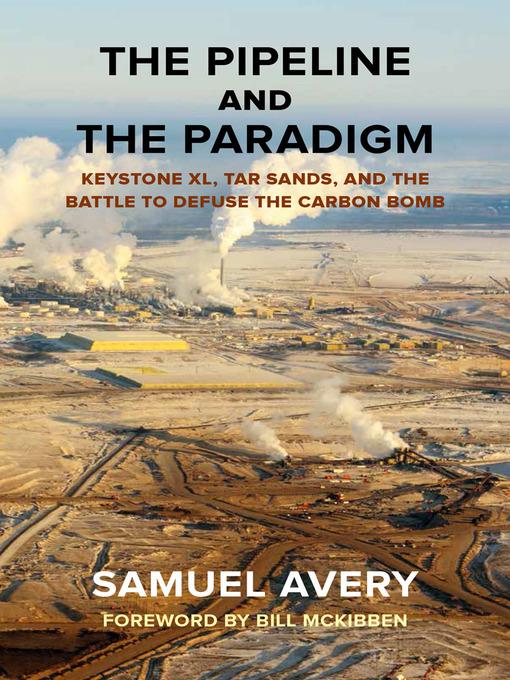
The Pipeline and the Paradigm
Keystone XL, Tar Sands, and the Battle to Defuse the Carbon Bomb
کتاب های مرتبط
- اطلاعات
- نقد و بررسی
- دیدگاه کاربران
نقد و بررسی

January 28, 2013
Environmental activist Avery travels the route of TransCanada’s controversial Keystone XL pipeline, engaging in frank and respectful dialogue with proponents and opponents in Alberta, Canada, North and South Dakota, Nebraska, Oklahoma, and Texas. Admittedly partisan Avery, who was once arrested while protesting the Pipeline, illustrates the personal side of global ecological issues. Beginning with an exploration of dichotomous thinking about economy vs. ecology, he argues for a new paradigm of interdependent solutions. Using interviews and anecdotes, he introduces readers to a vast array of opinions surrounding the pipeline: a Republican rancher in Nebraska fighting TransCanada’s arrogant claims of eminent domain; a North Dakota farmer with damaged land from an undetected leak; an elderly woman in Texas pressured into signing over access to her property. Avery respectfully presents opposing viewpoints as well, including a lengthy interview with a TransCanada v-p and a moving encounter with a farmer whose support for the pipeline stems from believing in man’s God-given right to transform the Earth. While the paradigm shift Avery describes isn’t groundbreaking, his finely researched book blazes with hope.

March 1, 2013
TransCanada's Keystone XL pipeline was in the news during the recent presidential campaign, and here Avery (Buddha and the Quantum) examines its role in the future of our planet. The pipeline will pump heavy oil from Canada's vast tar sands to the Gulf of Mexico for refining and possible export. Avery explains that the paradigm of the title is a shift from economic to ecological priorities. Economically, the pipeline represents a part of U.S. energy security. Ecologically, it's "the fuse of the Alberta carbon bomb," and will hasten climate change. The author travels the pipeline's route across the Dakotas, Nebraska, Kansas, Oklahoma, and Texas. He interviews pipeline supporters, landowners, and activists, then joins in acts of civil disobedience. These protests won't always stop the pipeline's construction, but, he admits, they may help shift the country's thinking about fossil fuels. VERDICT This folksy book also contains hard scientific truth. Essential reading for residents of Alberta and states or provinces with similar issues, and recommended for everyone concerned about climate change.--David Conn, formerly with Surrey Libs., B.C.
Copyright 2013 Library Journal, LLC Used with permission.

February 15, 2013
Almost unmentioned by the mainstream media a few years ago, the Keystone XL pipeline project, which would extend an existing oil pipeline from Canada to Texas refineries, suddenly became controversial when President Obama temporarily halted its construction in 2012. Environmentalists quickly vilified the pipeline as an agent in exacerbating global warming, while industrialists extolled its potential to create jobs and promote energy independence. No stranger to divisive ecological issues, Avery, a longtime social activist and solar-panel entrepreneur, offers a guided tour of all the contentious issues surrounding the pipeline, from climate scientists' assertion that Canadian tar sands oil extraction will almost double atmospheric carbon dioxide to the risk of damaged ecosystems wherever the pipeline is built. While Avery gives pipeline promoters a fair hearing, it's clear where his values lie in framing opposition to Keystone XL as the most critical environmental cause of our time. Allowing the project to continue could spell irreversible climate change, while blocking it would signal a global paradigm shift in finally putting our planet's welfare above industry-driven profit. Extremely useful analysis as debate continues.(Reprinted with permission of Booklist, copyright 2013, American Library Association.)

























دیدگاه کاربران